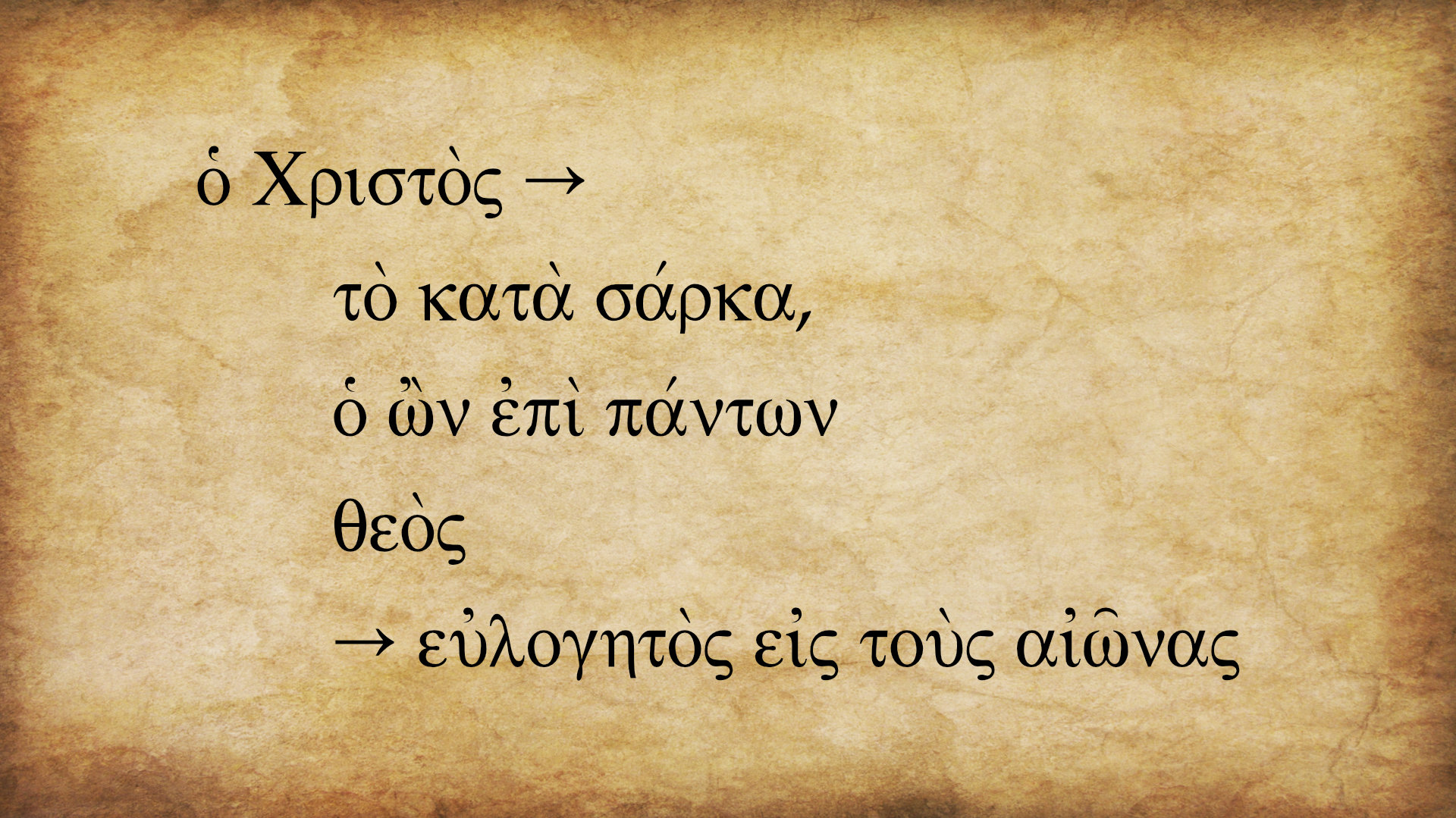For an Informed Love of God
You are here
Is Jesus God? (Rom 9:5)
Prof. Bart Ehrman claims that originally John 1:18 declared Jesus to be the “unique Son” (μονογενὴς υἱός), which was later changed to “unique God” (μονογενὴς θεός) by the orthodox scribes who wanted to assert the divinity of Christ in contrast to the adoptionists (Misquoting Jesus, 61–62.)
In my upcoming book, Why I Trust the Bible, due out in August, I deal with this text critical issue (spoiler alert, John originally did write “unique God”), but here I want to make a different point. Even if John did write “Unique Son,” there are other proofs for the deity of Christ.

For example, Mark starts his Gospel with the title, “The beginning of the good news about Jesus the Messiah, the Son of God,” and then spends much of his Gospel showing Jesus doing things that only God can do.
But in terms of actual statements, we have several important ones.
- “the Word was God” (John 1:1)
- “No one has ever seen God, but the one and only Son, who is himself God and is in closest relationship with the Father, has made him known” (John 1:18b)
- “I and the Father are one” (John 10:30)
- “the glory of our great God and Savior, Jesus Christ” (Titus 2:13)
But the one verse that is questionable is Romans 9:5. Remember, there was little to no punctuation in the original manuscripts, so where we put the comma or period is an interpretive position. Word for word, it says,
“The Christ the according to flesh the being over all God praised forever.”
ὁ Χριστὸς τὸ κατὰ σάρκα ὁ ὢν ἐπὶ πάντων θεὸς εὐλογητὸς εἰς τοὺς αἰῶνας
If you put a full stop after σάρκα (“flesh”), then ὁ begins a new sentence. “Israelites ... to them belong the patriarchs, and of their race, according to the flesh, is the Christ. God who is over all be blessed for ever. Amen” (RSV). Interestingly, the RSV translation team changed the punctuation in their revision. “Israelites ... to them belong the patriarchs, and from them, according to the flesh, comes the Messiah, who is over all, God blessed forever. Amen” (NRSV).
If you think Paul is affirming the deity of Christ, then you put a comma after “Messiah.” “Theirs are the patriarchs, and from them is traced the human ancestry of the Messiah, who is God over all, forever praised! Amen” (NIV, and most translations).
The grammatical arguments favor an ascription of deity to Christ. If ὤν referred to God (the Father, not Jesus), then we have a relative pronoun before its antecedent θεός. While not impossible, it is not natural Greek. If ὁ ὤν ἐπὶ πάντων refers to θεός, then the ὤν is unnecessary. The sense would be adequately expressed as θεός ... ὁ ἐπὶ πάντων, “God who is over all). So why the ὤν? And if the doxology is directed toward God, it creates a rough transition of subject from “Jesus” to “God.” (Other arguments are in Moo, Romans, 148f.)
Rather, it is more usual to read ὁ ὤν ἐπὶ πάντων (“the one being over all”) as modifying ὁ Χριστός, and θεός being in apposition to Χριστός.
The only real argument to the contrary is that Paul nowhere else so clearly say Jesus is God, but that argument fails on Titus 2:13.
Historically this is an important passage. When the RSV (the translation I was raised on) was first published with its punctuation of this verse and its translation of Isaiah 7:14 as “young woman” and not “virgin,” the translation was virtually banned from evangelical churches.
I would not pin my doctrine of the divinity of Christ on this verse, but it most likely does affirm that fact.


Comments
Affirming Deity
RESPONCE
Greg Logan
Did You Read the Article?
Greg Logan
Greg Logan
Add'l Object of Mark
Greg Logan
John 20.23
Affirming deity
Is Jesus God?
John 1:1 "...and God has-been-being the word"
Ην
Greg Logan
John 12:42 Declares He Is God!
Wow!!!
Fee in Pauline Christology on Romans 9.5
Hebrews 1 take?
Can we read scripture in context please?
I AM